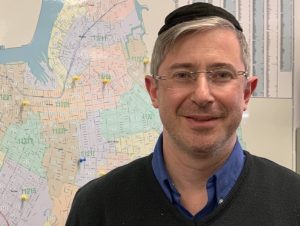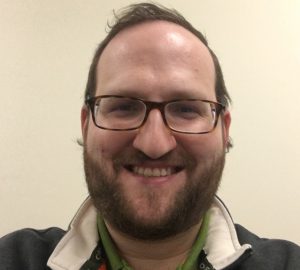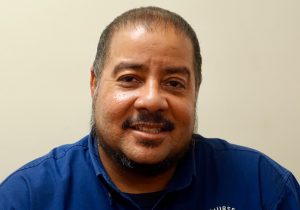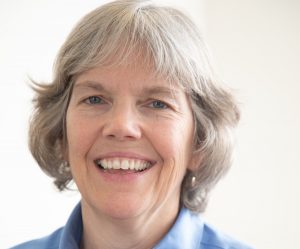Spotlight On…VNSNY Hospice & Palliative Care Social Workers!
 Matvei Berkovitch — VNSNY Hospice Social Worker, Brooklyn Region
Matvei Berkovitch — VNSNY Hospice Social Worker, Brooklyn Region
I see myself as an educator—educating people about the benefits of hospice care and how much they can really gain from it. I believe that people often come to hospice too late—they have a terminal illness and go to doctors seeking aggressive treatment when death is inevitable and they only have a few weeks to live. I never tell people to stop fighting, but I do try to help them realize what truly matters. If you dig a little deeper, people will tell you what’s important to them: their relationships, being home, spending quality time with their family. Although we call this end of life, I always emphasize the “life” part to people. We can bring meaning to a person’s life, along with comfort and acceptance of his or her destiny. That’s what hospice is about.
What makes me happy is the connection I have with my patients and their families—gaining their trust, being welcome in their home, learning about their lives, seeing their photos, being part of their support system, and helping with their decision-making. I am honored to be able to do this. Yes, I bring hospice, but I also bring a lot of positive energy, experience, and quality of life. And sometimes smiles. I can leave a patient’s home and feel like I’ve accomplished something today.
 Joseph Bleiberg — VNSNY Hospice Social Worker, Queens Region
Joseph Bleiberg — VNSNY Hospice Social Worker, Queens Region
I would say that, for a lot of my patients, I’m a translator—for the complex medical language that they hear and all the terminology that’s thrown at them. I help people come to grips with, and gain an acceptance of, what’s happening to them in terms of their health, their deterioration and their symptoms, and kind of take ownership of that. We talk about their lives and what makes them tick, and I hear the story of how they got to this stage. They take comfort in that.
My work also involves the family—they are all going through this together but they’re experiencing it separately. My job is to get them all on the same page, as much as I can. I help them understand that it’s okay to be sad together, and that it’s also okay to still experience life’s joys together. Because at the same time that a life is ending, life goes on for the families—they still have to go to work and pay their bills, and maybe they have their own kids to care for. There’s still so much of life that goes on, even at the end of life.
 Dani Calderon — VNSNY Hospice Social Worker, Manhattan Region
Dani Calderon — VNSNY Hospice Social Worker, Manhattan Region
As a hospice social worker, I’m there to help families during a stressful transitional period. Very often their first reaction is resistance; they say they don’t need a social worker—whether it’s because they’re in denial, or because they think of it as some unnecessary therapy. For this reason, I always ease in gently. I let them know that I’m there to provide support emotionally, and I explain the hospice program, our philosophy, and how we work as an interdisciplinary team. I also help them understand the huge amount of medical information they’re receiving, which can be hard to absorb.
Above all, I alleviate their anxiety. Very soon the family members start to relax and trust me, and then they start opening up and telling me their stories. My grandmother was in the VNSNY Hospice program nine years ago, so I can relate to what they’re going through. My biggest reward is knowing I’ve had a positive impact on the lives of my patients and their loved ones. Sometimes someone will call out to me by name on the street—someone I might not even remember because I worked with their family so long ago—and they thank me. That always puts a smile on my face.
 Joan Gasser — VNSNY Hospice Social Worker, Bronx Region
Joan Gasser — VNSNY Hospice Social Worker, Bronx Region
I always struggle to describe my job, because I feel we pretty much do everything and anything that’s needed for the families we work for. We provide some very concrete services—planning for home care, discussing advance directives for issues like resuscitation and intubation, or finding them resources if they’re struggling financially. As a social worker, I can engage in conversations with my hospice patients that they couldn’t have with their families and friends. I think we social workers provide that objectivity, where they can just talk to us about everything—there’s no judgment and no guilt.
At the same time, we also offer a lot of emotional support helping people cope with the changes and challenges that they face with a terminal illness. Roles and family dynamics change: Children and spouses suddenly find themselves in the role of caregiver. We work with the families, helping them understand the changes and educating them about the end of life and what that might look like for their loved one. What’s most rewarding for me is if, even in just one hour-long visit, I feel that I’ve given them some peace of mind.
To view more profiles celebrating VNSNY Social Workers, click here.